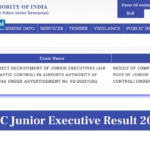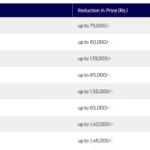Radhakishan Damani is widely regarded as one of India’s most successful investors and entrepreneurs. Known for his humility and sharp business instincts, he is the founder of DMart, one of the country’s most profitable retail chains. His journey from a modest upbringing to becoming one of India’s wealthiest individuals is a story of patience, discipline, and foresight. This blog explores his early life, his stock market career, the creation of DMart, his investment philosophy, and key lessons from his success.
Early Life and Background
Born in 1954 in Bikaner, Rajasthan, and raised in Mumbai, Radhakishan Damani came from a modest Marwari family. His father worked on Dalal Street as a small-time stockbroker, which gave him an early view of the financial world. Damani enrolled in a commerce degree at the University of Mumbai but dropped out after his first year. After his father’s death, he took over the family’s ball-bearing business, but soon his interest shifted to the stock market. This decision marked the beginning of his legendary career as an investor.
Entry into the Stock Market
Damani started as a stockbroker in the early 1980s. Initially, he traded actively but soon realized that short-term speculation was not a sustainable path to wealth. He began to observe market movements, balance sheets, and management styles. His patient nature allowed him to spot undervalued companies with strong fundamentals. He became well known in the 1990s for his contrarian bets and for maintaining a calm demeanor even during volatile times. His approach to investing was deeply influenced by value investing principles similar to those of Warren Buffett.
One of the turning points in his stock market career came during the Harshad Mehta era in the early 1990s. While many investors were caught up in the speculative frenzy, Damani quietly took contrarian positions and profited when the market corrected. This cemented his reputation as a disciplined and farsighted investor who looked beyond short-term noise.
Transition to Long-Term Investing
As he matured as an investor, Damani shifted from being a trader to a long-term investor. He started focusing on businesses with strong competitive advantages, efficient management, and the potential for consistent growth. This change in strategy not only stabilized his portfolio but also multiplied his wealth over time. He also became a mentor to several well-known investors in India, sharing his insights and philosophy.
Foray into Retail
Damani’s interest in retail started in the late 1990s. He initially experimented with a small franchise of an existing retail chain but realized that he wanted to build his own model. He studied how international retailers like Walmart operated and combined those ideas with his understanding of the Indian consumer. He saw a gap in the market for a retail chain that offered quality products at consistently low prices without gimmicky promotions.
The Birth of DMart
In 2002, Damani opened the first DMart store in Powai, Mumbai. Instead of rushing into rapid expansion, he took a cautious approach. He focused on owning the real estate for his stores instead of renting, which helped keep costs low in the long term. The stores were designed to be functional rather than flashy, keeping operational expenses minimal. DMart concentrated on essentials—groceries, household items, and value-for-money products—catering to the middle-class consumer.
This formula worked brilliantly. By focusing on everyday low prices, efficient supply chains, and strong vendor relationships, DMart built a loyal customer base. It avoided debt and grew steadily, emphasizing profitability over rapid but risky expansion.
DMart’s Growth Story
From one store in 2002, DMart expanded to dozens of stores by the early 2010s. Its initial public offering (IPO) in 2017 was a watershed moment. The stock listed at a premium and quickly became one of the most valuable retail companies in India. Investors admired its consistent growth in revenue and profit margins, a rarity in the retail sector where thin margins are the norm.
Unlike many other retail chains, DMart did not rely heavily on advertising. Its marketing was largely word-of-mouth, supported by its reputation for low prices and reliable service. By 2025, DMart had become synonymous with value shopping in India, operating hundreds of stores across the country.
Investment Philosophy
Damani’s success with DMart reflects the same principles that made him successful in the stock market. He believes in patience, discipline, and focusing on fundamentals rather than hype. Whether investing in companies or building his own, he looks for businesses with durable advantages, conservative financial management, and room for steady growth.
He is also known for his ability to read the bigger picture. For example, he studies economic indicators such as consumer spending patterns and commodity prices to anticipate retail trends. This analytical approach helps him stay ahead of the curve.
Portfolio Beyond DMart
Although DMart is the crown jewel of his business empire, Damani also holds significant stakes in other companies across industries such as tobacco, cement, financial services, logistics, and hospitality. His portfolio is diversified but built with the same careful selection. He prefers to invest in businesses he understands deeply and to hold them for long periods.
Personal Life and Traits
Despite his immense wealth, Radhakishan Damani is known for his simple lifestyle. He typically dresses in plain white clothes and avoids the limelight. Colleagues and employees describe him as humble, soft-spoken, and deeply analytical. He values privacy and rarely makes public appearances or gives interviews.
His daily routine reflects his disciplined mindset. He reportedly wakes up early, spends time in reflection, and limits his exposure to live news to avoid emotional decision-making. Instead, he focuses on real data and firsthand information. This calm and methodical approach has helped him maintain clarity even in turbulent times.
Lessons from Radhakishan Damani’s Journey
1. Patience Pays Off
Damani’s journey shows that building wealth and a business empire is a long-term process. He did not chase quick profits but focused on steady, sustainable growth.
2. Focus on Fundamentals
Whether investing in stocks or running DMart, his emphasis on fundamentals over hype has been the cornerstone of his success.
3. Operational Efficiency Matters
By keeping costs low, owning store properties, and maintaining strong vendor relationships, DMart achieved higher margins than many competitors.
4. Humility and Simplicity
Damani’s understated lifestyle and low public profile demonstrate that success does not require flashiness. Humility can be a competitive advantage, allowing one to stay grounded and focused.
5. Adapt and Learn
From ball bearings to stock trading to retail, Damani continuously adapted to new opportunities while applying lessons from past experiences.
Impact on Indian Retail
Radhakishan Damani revolutionized India’s organized retail sector. DMart showed that it is possible to combine low prices with profitability by running a tight operation and understanding the consumer. His approach has influenced many other retailers and set a benchmark for operational excellence in the industry.
Conclusion
Radhakishan Damani’s story is a testament to the power of vision, discipline, and patience. From a stockbroker on Dalal Street to the founder of India’s most successful retail chain, he exemplifies how clear thinking and long-term focus can create enormous value. For aspiring entrepreneurs and investors, his journey offers timeless lessons: know your business deeply, focus on efficiency, avoid unnecessary noise, and stay humble even as you grow.










